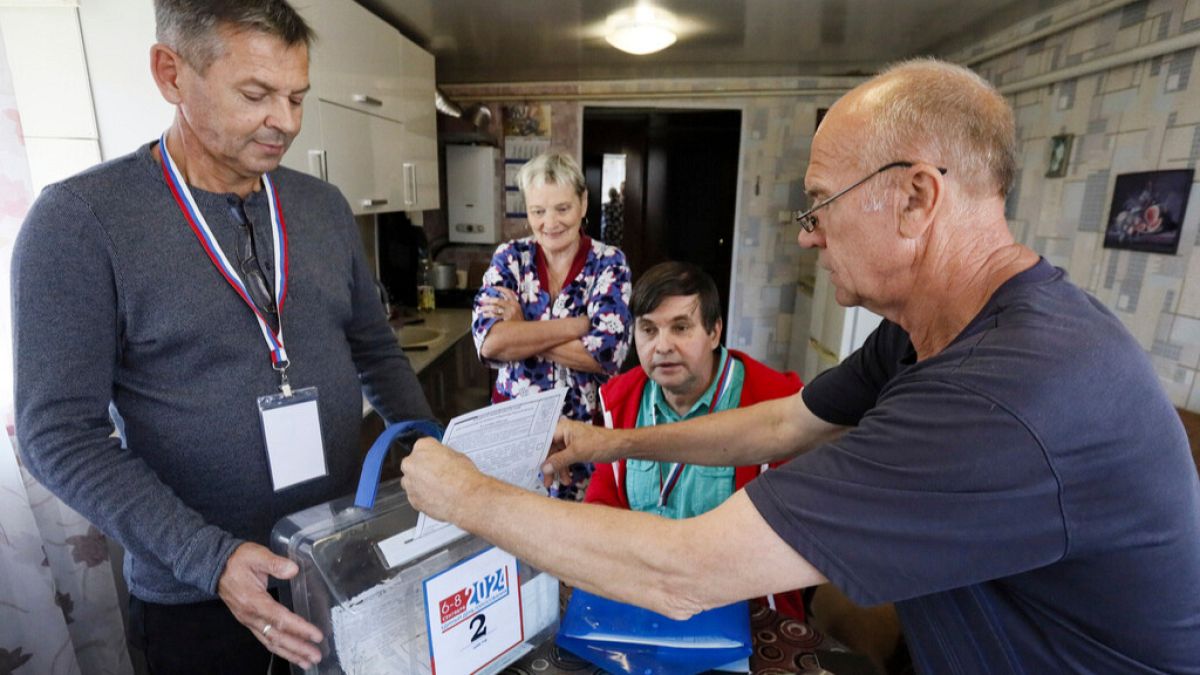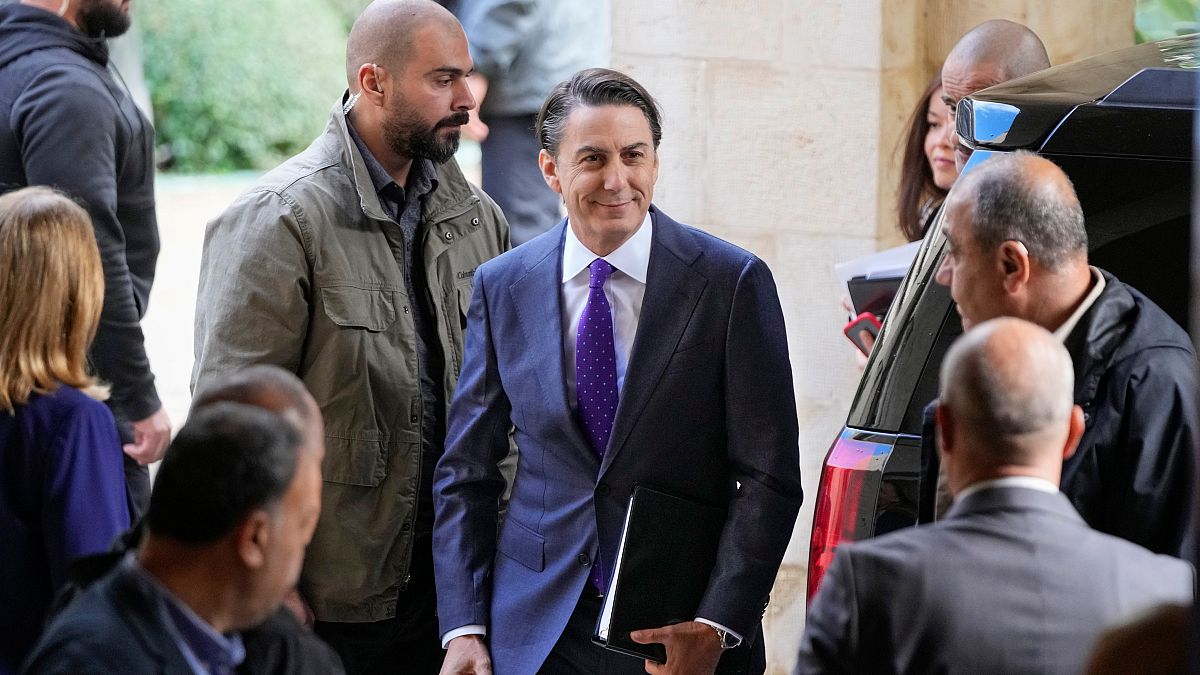Climate of intimidation haunts Georgian elections
Opposition activists and journalists warn of efforts to silence them as police raid Western businesses and the homes of think-tank employees.
TBILISI, Georgia — The Georgian government is presiding over a new crackdown on critical voices just days before the country heads to the polls for a vote that will determine its future relationship with Russia and the West, NGOs and campaigners have warned.
In an interview with POLITICO, Nika Gvaramia, a former justice minister and opposition politician, said that Saturday’s nationwide parliamentary elections would be “a referendum on the future of Europe,” and that the ruling Georgian Dream party could attempt “to intimidate or suppress the vote.”
“On Saturday we have over 10,000 observers ready to protect the vote. This is the largest voter protection mechanism in our country’s history,” he said. “Let me be clear, the [opposition] coalition, our representatives and our partners will protect every single vote because every single vote counts toward our European future.”
Gvaramia was convicted of abuse of power and sentenced to over three years in prison in 2022 in a case that the EU and U.S. said could have been “politically motivated.” He was released last summer after being pardoned by pro-Western President Salome Zurabishvili.
Earlier on Thursday, authorities in the South Caucasus country searched the homes of two researchers with the Atlantic Council, a U.S. think tank. Police reportedly confiscated phones and computers at the apartments of Eto Buziashvili and Sopo Gelava, who monitor disinformation and Russian influence in Georgia.
A report published by the think tank’s Digital Forensic Research Lab earlier this month, authored by Buziashvili, Gelava and their colleagues, warned that since the start of the war in Ukraine in February 2022, the Georgian government has prioritized “obtaining economic benefits from Russia and appeasing its northern neighbor.”
In a statement, the Atlantic Council said that “our Georgian colleagues, Sopo Gelava and Eto Buziashvili, are engaged in independent, non-partisan work aimed at defending and strengthening democracy from those who would undermine it in online spaces, including research related to foreign influence efforts, the targeting of marginalized communities, and other online harms.”

At the same time, investigators also searched the office of U.S. tech giant Concentrix, a Fortune 500 firm that specializes in outsourcing. According to local media, the company was being probed by the Finance Ministry in an unusual move ahead of the nationwide poll.
“There’s a deliberate attempt to intimidate people — voters, civil society and opposition politicians,” said Luka Pertaia, a prominent Georgian reporter working with RFERL. “There’s a feeling in opposition circles, the media and NGOs that people who have links to the West might be targeted.”
The clampdown comes after political violence peaked in Georgia over the summer, as the government forced a controversial Russian-style ‘foreign agent’ law through parliament, targeting Western-backed NGOs, media outlets and human rights groups. Georgian Dream has also championed legislation to outlaw all public reference to the LGBTQ+ community, and has vowed to ban the entire parliamentary opposition following the election.
Citing backsliding on human rights, Brussels has effectively suspended Georgia’s candidate status, cancelling aid and development funding and calling on the ruling party to reverse its attacks on civil society. The U.S., meanwhile, has imposed sanctions on the top politicians and police officials it says are responsible for the repression.
Georgian Dream’s election campaign has featured billboards showing the scale of destruction in Ukrainian cities, as the populist faction’s leaders claim siding with the West would mean renewed conflict with Russia.
Despite that, polls show the vast majority of Georgians still want to join the EU, and that resentment of Moscow is widespread following a Russian invasion in 2018 that left a fifth of the country under the control of the Kremlin and its proxies.
The critical electoral test comes days after Moldova warned that Russia had engaged in a massive vote-buying campaign that almost derailed its referendum on EU membership.
What's Your Reaction?


















































